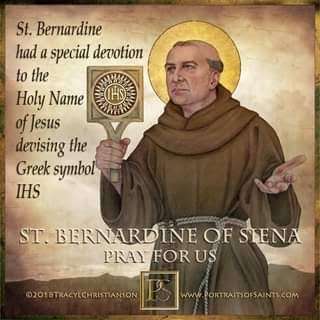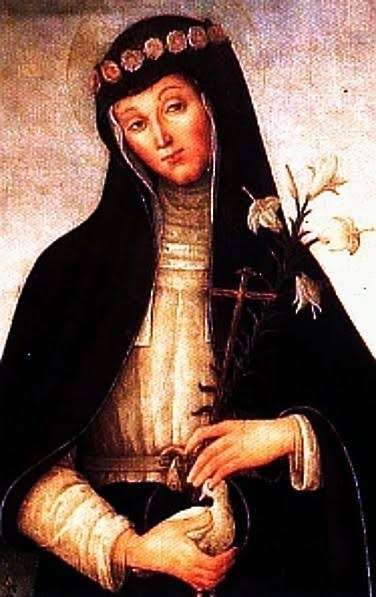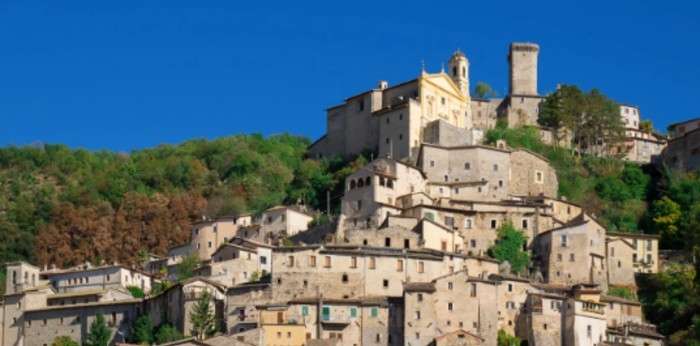Saturday 20 May 2023 Saturday of the 6th week of Eastertide
Readings at Mass
Liturgical Colour: White. Year: A(I).
| First reading | Acts 18:23-28 © |
|---|
Apollos demonstrated from the scriptures that Jesus was the Christ
Paul came down to Antioch, where he spent a short time before continuing his journey through the Galatian country and then through Phrygia, encouraging all the followers.
An Alexandrian Jew named Apollos now arrived in Ephesus. He was an eloquent man, with a sound knowledge of the scriptures, and yet, though he had been given instruction in the Way of the Lord and preached with great spiritual earnestness and was accurate in all the details he taught about Jesus, he had only experienced the baptism of John. When Priscilla and Aquila heard him speak boldly in the synagogue, they took an interest in him and gave him further instruction about the Way.
When Apollos thought of crossing over to Achaia, the brothers encouraged him and wrote asking the disciples to welcome him. When he arrived there he was able by God’s grace to help the believers considerably by the energetic way he refuted the Jews in public and demonstrated from the scriptures that Jesus was the Christ.
| Responsorial Psalm |
|---|
| Psalm 46(47):2-3,8-10 © |
| Gospel Acclamation | Jn14:16 |
|---|
| Or: | Jn16:28 |
|---|
| Gospel | John 16:23-28 © |
|---|
The Father loves you for loving me and believing that I came from God
Jesus said to his disciples:
‘I tell you most solemnly,
anything you ask for from the Father he will grant in my name.
Until now you have not asked for anything in my name.
Ask and you will receive, and so your joy will be complete.
I have been telling you all this in metaphors,
the hour is coming when I shall no longer speak to you in metaphors;
but tell you about the Father in plain words.
When that day comes you will ask in my name;
and I do not say that I shall pray to the Father for you,
because the Father himself loves you for loving me
and believing that I came from God.
I came from the Father and have come into the world
and now I leave the world to go to the Father.’
OR
Saint Bernardine of Siena, Priest

Christ the Lord has promised us the Holy Spirit: come, let us adore him, alleluia.
Year: A(I). Psalm week: 2. Liturgical Colour: White.

Christ the Lord has promised us the Holy Spirit: come, let us adore him, alleluia.
Year: A(I). Psalm week: 2. Liturgical Colour: White.
Saint Bernardino of Siena (1380 - 1444)
Bernardino (“Little Bernard”) was born in Tuscany. His parents died when he was a child. While still a student at the University of Siena he took charge of the hospital there when an epidemic killed most of the staff. Later he looked after a bedridden aunt until her death; and then, at the age of 22, he became a Franciscan.
Inspired by St Vincent Ferrer, he was an energetic and popular preacher and spent years travelling on foot through Italy preaching to enormous audiences. He denounced usury, promoted peace among the warring Italian cities, and worked hard for the reform and discipline of the Franciscan order, and for church unity.
Bernardino’s achievements before he became a Franciscan show what the young can achieve if given the chance. Let us try not to confirm them in a culture of enforced irresponsibility, but to encourage each of them to give to others whatever they have been called into this world to give.
See the articles in Wikipedia and the Catholic Encyclopaedia.
Other saints:
Bl. Columba of Rieti OP (1467 - 1501)

20 May (where celebrated)
Dominbican Sister and Virgin.
Blessed Columba was born in Rieti, Italy, in 1467. She was clothed with the habit of the Dominican Sisters of Penance at Rieti. Following in the footsteps of Saint Catherine of Siena, she showed an admirable charity towards the poor, the sick and the dying. In Perugia she founded a convent of sisters where she made profession and became prioress in 1490. There she was noted for her work of reconciliation for which she received the name “Dove of Peace.” She died there on the feast of the Ascension, May 20, 1501.
About the author of the Second Reading in today's Office of Readings:
About the author of the Second Reading in today's Office of Readings:
